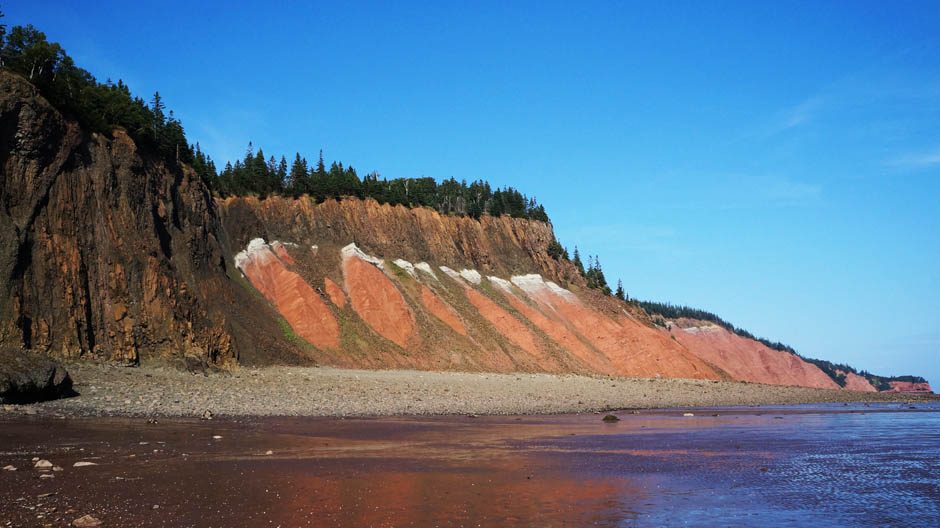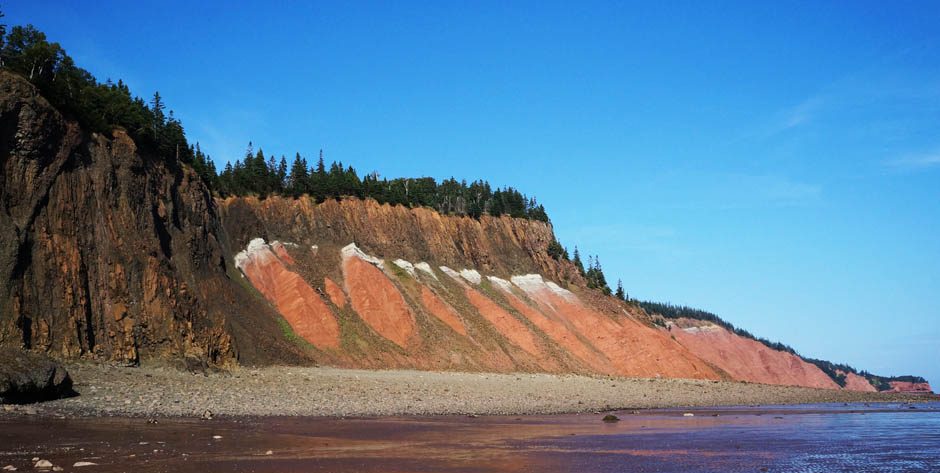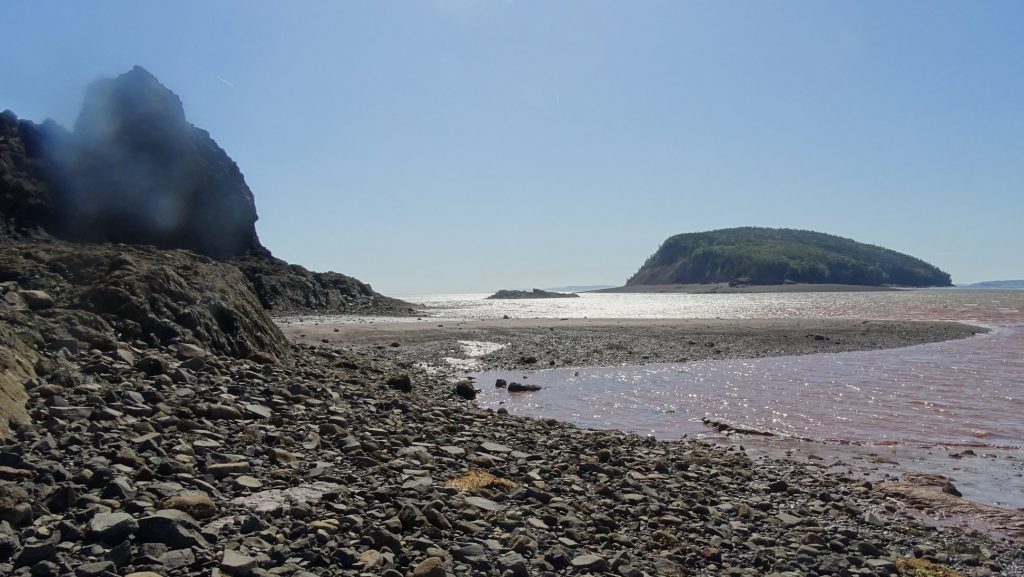For a while, this scene has been in my mind, but especially today.
| I like to spend some time at this site at Nova Scotia’s Five Islands Provincial Park at least once a year. It is surely one of the most spectacular sites in Nova Scotia. It is also humbling.
The exposure records the Triassic/Jurassic boundary (whitish layer) of 201 million years ago. It coincides with the 4th Mass Extinction Event of 5 major extinction events that occurred after the the Cambrian Radiation. The Triassic/Jurassic extinctions were associated with environmental impacts of a massive lava flow, recorded in the dark basalts above the whitish layer. A skin of today’s forest – of the living world – lies on top, the intervening softer rocks scraped off by successive glaciations. Below the whitish layer are red Jurassic rocks, “the sediments swept by rivers and winds in the rift valley”. The 5th Mass Extinction Event – the one that wiped out dinosaurs and facilitated the rise of mammals and finally humans – was associated with an asteroid hitting the Earth 65 million years ago. The 6th Mass Extinction Event is now underway purely at the hands of man; how we manage our forests and our own lives could help to reduce the damage to species and ecosystems, or to make it worse. “Currently, human activities are causing carbon dioxide levels to change more rapidly than volcanoes, asteroids, or anything else in Earth’s 4.5 billion year history.” – Putting it in perspective: Climate change yesterday and today (evolution.berkeley.edu) ———– From fundygeopark.ca/old-wife/:
It was a difficult conversation. I was born into a world that was far richer in biodiversity than the world of today. The human population was approx. 2.3 billion; today it stands at 7.7 billion. Atmospheric CO2 was 310 ppm; in 2021 it is over 417 ppm and increasing more than 3X as fast. There is serious concern that global forest fires are triggering an uncontrolled positive feedback loop (forest fires increase CO2, the planet gets warmer, and we have more fires, the permafrost melts and releases massive stores of carbon…); there are other equally precipitous potential or real Tipping Elements. On a local scale, we are seeing collapse of ecological systems as we have known them everywhere. I think of the “Hemlock Vampires” and the “Alligator Fish” that are devastating Keji on land and in the water. I think of the collapse of shallow water reefs in the Caribbean that I witnessed years ago. I think of collecting a myriad of butterflies on a mountain in Brazil and of the many birds I knew of as a kid and struggle to find today. I think of the cod I fished with multiple hooks on a line in Mahone Bay as a youth, and of the insect shields we had to use on cars. I think of the Old Growth forests I once took for granted. I think of the once plentiful brook trout and salmon on the Eastern Shore. I think of being stuck in the summer ice in the Beaufort Sea. I think of so much more in many places and amongst many cultures. So I am very appreciative that I am old enough to have known a far different natural world, even a far different cultural world, and that I had many opportunities to experience it. But that also leaves me very sad on Earth Day in 2021. |


